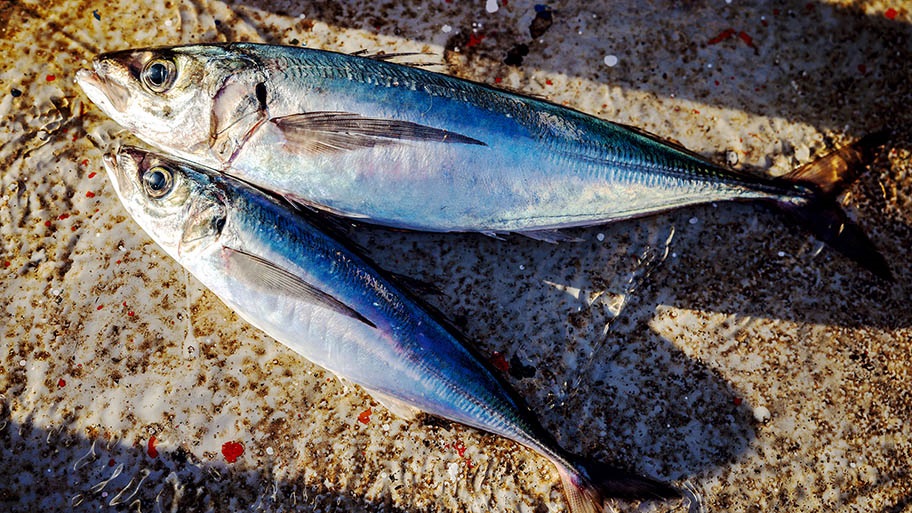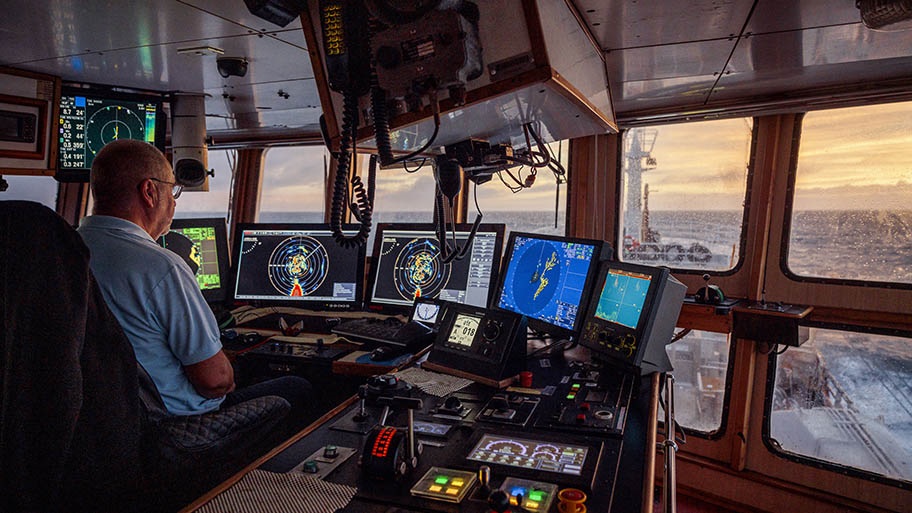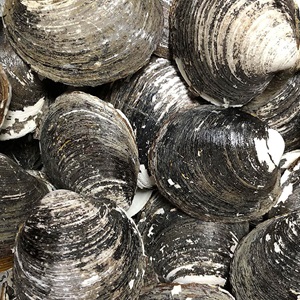“It was believed to be a species that would last forever,” recalls Andrés Daroch, who witnessed how the once abundant Chilean jack mackerel collapsed after overexploitation by fleets in the South Pacific.
At its peak more than 4 million metric tonnes (MT) of jack mackerel was landed, but overfishing in the 1990s led to tough quotas. There was extreme competition between companies. Daroch, a businessman in the fishing sector, remembers a time in the early 2000s when a whole year’s quota was landed in just 20 days, seriously impeding the stock’s recovery. "Just like at a birthday party when the piñata breaks, everyone would rush out. The more efficient and faster ones would catch more," he says.
By 2011 the stock had collapsed and fishers could only catch a maximum of 350,000 MT. This was devastating for fishing-dependent communities in coastal towns like Coronel, in central Chile, where Daroch lives.

Freshly caught jack mackerel © Ernie Enkelaar / MSC
International agreement and recovery
Captain Elvis Macaya, from nearby Coliumo Bay, says it was a social crisis: “[It] endangered our employment, it was a critical period in which jack mackerel was heavily exploited, both by us and the foreign fleet.”
As jack mackerel migrate across boundaries - from the Chilean and Peruvian coasts all the way to New Zealand and south Australia - only international cooperation could save the species. This came in 2013 with the formation of the South Pacific Regional Fishing Management Organisation (RFMO), which agreed an allocation between 10 nations.
While following the RFMO’s precautionary management measures, a Chilean fishing association sought MSC certification, but they couldn’t meet the Standard until the species recovered. Persevering for eight years was worthwhile, says Allan Carrasco, sustainability manager for Orizon, one of the association members, because: “third-party validation confirms that we genuinely practice what we preach.”
Bust to boom: Lessons from Chile's Jack Mackerel
Certification and improvement
The Chilean fishery finally gained certification in 2019, and thanks to well-managed operations, the health of the jack mackerel stock has improved more rapidly than scientists had expected. Macaya, who captains Orizon’s San Jose vessel, says: “In the last five years we have had an abundance we haven't seen since the 1990s.”
His crew of 16 to 20 face sacrifices and risks on every voyage - working at night using heavy gear, navigating slippery decks in bad weather, operating machinery as huge waves pelt them – but they have a shared passion for the ocean. ‘It is a high-risk job, but it is something I love… and I have a special feeling with my people (the crew), we take care of each other. I trust them,” says Macaya.
Abdel Agüile Gorayeb, the captain of the Ventisquero, which sets sail from the large port of Concepción, 40km away, agrees. Fishers don’t take the natural resources for granted and want to prevent disaster from ever happening again.
Captain Gorayeb points to his screens and describes how precisely they now target mackerel using sonar and echo equipment, allowing them to accurately pinpoint locations, identify species and determine size.

Captain Abdel Agüile Gorayeb © Ernie Enkelaar / MSC
The European market
On the other side of the world, the sustainability of mackerel in the North East Atlantic (NEA) is a concern. When fisheries lost their MSC certification many in the supply chain lost an important source of sustainable seafood.
German business Followfood prides itself on its sustainability, with the MSC Standard being the baseline for all its fish products. "We suddenly couldn’t source certified NEA mackerel" says its deputy managing director, Julius Palm, but Chile provided a solution. "We lost money but we made a short-term sacrifice for long term gain, since switching to Chilean jack mackerel we have more credibility, more sales and more clients."
Coastal states in the North East Atlantic could learn from the lessons of the collapse and recovery in Chile. The industry suffered when they had to severely reduce fishing, but they realised it could only survive if changes were made. Today their world-leading sustainable fisheries management and international co-operation hasn’t just boosted the health of jack mackerel populations, it is good for business too.



/maldives-tuna-fishers-four-4006c4a6145b08c45179dacf1f90dc82592.tmb-thumb300.jpg?Status=Master&Culture=en&sfvrsn=2dc624c0_1)